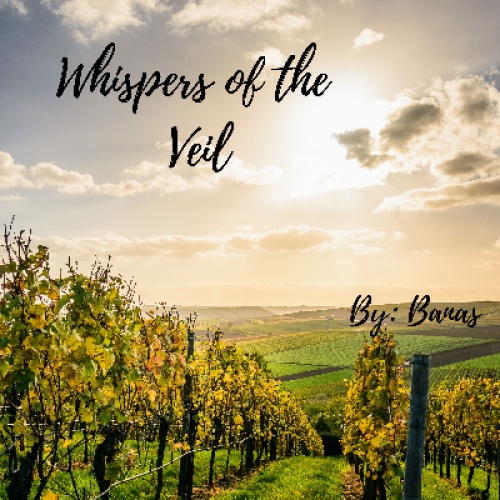She had nowhere to go.
After Michael left her for her best friend, the silence that followed wasn't peaceful - it was acidic. Every room in her apartment held pieces of a life that never happened. Wedding magazines stacked neatly by the door. A dress still in its bag. The scent of his cologne clinging to the blazer he left behind. The betrayal had bled into everything, staining even the air she breathed.
And then, as if the universe was mocking her, the financial firm she'd given five years of her life to folded overnight. She came in on a Thursday morning to find her desk boxed, her access revoked, and HR waiting with solemn eyes and a pitiful severance package.
No job. No fianc�. No apartment. And no one - absolutely no one - left to lean on.
She had sold her jewelry, canceled subscriptions, begged her landlord for two more weeks. It wasn't enough. She was down to her last hundred dinars when the letter came.
You are the sole beneficiary of Cordelia Thorne's estate. This includes the manor and vineyard located at Thorne Hollow, in the Somerset countryside...
She didn't even know she had a great-aunt named Cordelia.
But when you're drowning, you don't question the rope.
She packed what she had left into two suitcases, sold her car, and took the train as far as she could before renting a car from a sleepy village at the base of the hills. The road twisted like a ribbon between mossy trees and skeletal branches, until finally, there it was.
Thorne Hollow.
The manor stood like it had been pulled from a dream. Grand but forgotten, ivy crawling up the stone like veins. The vineyard stretched across rolling hills behind it, wild and unkempt, rows of grapevines like soldiers abandoned to the rain.
She stepped out of the car and the cold met her like a slap. But for the first time in months, she felt? still.
Hope wasn't always loud. Sometimes it was the quiet, broken shell of a house and a vineyard gasping for life.
She opened the heavy wooden door with a creak and stepped into the dark.
The scent was old - lavender, dust, forgotten paper. The furniture was covered in white sheets, cobwebbed and ghostlike. A fireplace stood tall in the grand room, ashes still black in its belly. Portraits hung on the walls - men and women with distant, solemn eyes.
The silence welcomed her. Not like the silence of her apartment. This was older. Deeper. Like the house had been waiting.
She set her bags down and wandered into the hallway. At the end of it was a tall, tarnished mirror. She paused in front of it, brushing dust from the edge.
She saw herself.
But the air behind her shimmered, just for a second.
She turned - nothing.
Still, she could have sworn she heard a breath. Just one. Whispered behind her ear.
Elena woke to the sound of birds. Not alarms or car horns - birds.
For a moment, she forgot where she was. The bed was too soft, the ceiling too high. Then she remembered: the manor. Her manor. Her last shot at survival.
She swung her legs over the side of the bed and stepped onto the cold, creaking floorboards. Dust still clung to every surface. She tied her hair up, threw on her warmest hoodie, and got to work.
She started by opening every window. Light poured in like judgment. Cobwebs dangled from the chandeliers, the furniture wore ghost-sheets of age. She pulled them off one by one, sending up clouds of dust.
She swept. She scrubbed. She sneezed.
In the sitting room, she found old ledgers - records of wine production from the 1800s. In the kitchen, antique wine bottles lined the cellar steps. Some still full. Most sealed in dust and wax.
By late afternoon, she stepped out into the vineyard.
The grapevines were overgrown, the trellises warped and brittle. Some vines had died. Others had burst through their supports like they were trying to escape.
She pulled out her phone and began snapping photos. Then she sat under the cracked gazebo with her laptop and started researching.
"How to revive a vineyard."
"Basics of grape varietals."
"Beginner's winemaking course."
She devoured knowledge the way a starving woman devours bread - with desperate, grateful hunger. Every article, every tutorial, every dusty manual wasn't just about vines; it was about planting herself again, in a place that might finally hold her roots.
Within days, her life followed a rhythm. Wake at dawn. Clean. Restore. Study. Walk the land. And every night - another online course, another page of furious notes.
Her muscles ached. Her bank account was down to coins.
But for the first time in her life, she felt like she owned herself.
No man. No company. No lies. Just her, this land, and a dream she was stitching together from ruin.
And at night, when the house grew quiet and the candles flickered low, she swore she could hear it again.
The faint notes of a piano? drifting from the west wing. The wing she hadn't touched yet.
She would open it soon. But not tonight.
Tonight, she fell asleep with vineyard maps across her chest and a wine-stained notebook open in her lap.
It had taken weeks, but the manor was beginning to feel like hers.
The furniture gleamed beneath layers of wax and elbow grease. The floors no longer sighed with every step. Her vegetable garden, carved from the forgotten patch behind the kitchen, had begun to sprout green. And the vineyard - her greatest challenge - was no longer a graveyard of brittle vines.
She spoke to them as she worked. Pruned gently. Tied them to new supports with cloth ribbon and hope. And somehow? they responded. Leaves unfurled. Grapes swelled in early clusters. The land, like the house, was beginning to breathe again.
And today, she decided it was time to face the one part she'd been avoiding.
The west wing.
She wrapped a scarf around her face and opened the heavy oak door. Dust exploded in a cloud, thick and choking. The air inside was stale, as if it hadn't been touched in decades. The hallway was narrow, lined with peeling wallpaper and crooked portraits. Each door she opened revealed forgotten rooms: a music room with a piano covered in mold-speckled velvet; a nursery, long abandoned; and then -
A bedroom.
Modest in size. Simple. A single four-poster bed stood beneath a shuttered window. The furniture was heavier, darker. And on the nightstand: a drawer, its handle rusted and stuck.
She pulled.
Nothing.
She braced a foot against the bedframe and yanked with all her strength.
The drawer groaned, then gave way.
Inside was a rusted tin box wrapped in wax paper. Her hands trembled as she lifted it out. It was sealed with a faded red ribbon, nearly disintegrated. When she opened it, the scent of time and dried rose petals unfurled like breath.
Letters. Dozens of them. Folded carefully, each one stained with age and sealed with wax. Her fingers brushed trembling across the top letter. The paper was brittle, the ink deep brown.
My dearest Cordelia?
Her breath caught.
She took the box and retreated to the study, her heartbeat loud in her ears. The room was dim, lit only by the golden spill of sunset through stained glass. She curled up on the velvet chaise, pulled a shawl around her shoulders, and opened the first letter.
She read another. And another. She couldn't stop. The handwriting was elegant, sweeping - his words woven like silk and smoke. Some were confessions. Others, wild declarations. Some read like poetry, others like prayers.
Hours passed.
She didn't notice the fire die in the grate. She didn't notice the wind picking up outside, or the candles flickering.
But she felt it when the air changed.
It was sudden - like the moment between dream and waking. Her skin prickled. The shadows deepened.
And then -
"Cordelia..."
Her head snapped up.
She looked around the room, heart hammering. It had been a whisper - low, reverent. The sound of it touched something ancient inside her, like she'd heard her name carried in the wind before she was even born.
"No," she whispered back, rising to her feet. "I'm not Cordelia."
The room remained still.
She reached for another letter but paused. The air had thickened. It pressed against her skin. She felt the heat of a presence behind her, something not entirely there, yet undeniably real.
She turned slowly.
And saw him.
A figure in the shadows near the window. Tall. Dressed in a military coat that shimmered like memory. In his hand, a silver pocket watch ticked softly, though he hadn't wound it in a century. His face was obscured, but the intensity of his gaze pierced through the veil between them.
Her breath hitched. Her knees weakened.
"You're? Gabriel."
He didn't move.
The candles flickered violently. Then darkness.
When she fumbled for her phone flashlight, he was gone.
But something remained. A scent - cedarwood, smoke, something sweeter. Familiar.
She clutched the letter to her chest, her heartbeat wild.
She wasn't losing her mind. She knew what she'd seen.
And something inside her - a quiet place that had long been dormant - was starting to awaken.
Every time she read the letters, he returned.
Never for long. Just enough to whisper, to linger. Each time, he became clearer.
And when she was too busy - when the vineyard demanded her every waking hour - she heard the piano.
Faint notes drifting from the west wing.
She began to look forward to those evenings. She prepared them like rituals. Candles. Clean parchment. A glass of wine. And always, his letters.
Sometimes they read them together.
Sometimes he spoke as if from within the pages.
One night, he appeared closer than ever. His form not quite flesh, but almost. His eyes met hers, and this time, they did not waver.
"You're not her," he said.
"I know."
"I don't love you," he added, quiet and unflinching.
"I don't expect you to."
But she kept reading.
And he kept coming.
The dream came on the edge of the full moon.
She stood barefoot in the vineyard, moonlight pouring over the hills like milk. The vines were heavy, ripe. The air tasted of wine and silver.
Music played - Clair de Lune.
Gabriel appeared from the rows, in shirt sleeves and soft eyes. He said nothing, only offered his hand.
She took it.
They danced.
The earth spun slower. The world stilled. And for the first time in her life, she felt entirely whole.
When she woke, her fingers clutched a key.
She found Cordelia's journal in a false drawer beneath the piano bench. In it - rituals, confessions, longing. The truth.
Gabriel had worked for Cordelia's grandfather. They'd grown up together. Loved in secret. She was promised to another. He was sent to war.
Cordelia tried to bring him back - but only managed to tether him.
There was a ritual to finish it.
But it required a sacrifice.
She showed Gabriel.
He was afraid.
He feared losing himself. He feared she would regret it. He feared she would hate him.
She chose him anyway.
The ritual began at moonrise. A chalice of ancestral wine. A lock of hair. Symbols written in blood-red ink.
To bring him fully back - she had to give up her past.
Not her life.
Her memories.
She would forget her heartbreak. Her childhood. Her name.
Except for one thing: him.
She hesitated, chalice trembling in her hands. She thought of a thousand small things she would lose - the smell of her mother's kitchen, the feel of sun on her bicycle, the melody of a childhood song she could almost hum but not quite name. Tears spilled unchecked.
But when she looked at him - Gabriel, steadfast and breaking before her - she knew.
Some things were worth forgetting.
She drank.
Darkness fell.
She slept for three days.
Gabriel never left her side.
He watched, helpless and human, as she lay silent.
When she woke, her eyes were wide and full of panic.
"Where? am I?"
He was silent.
"I don't remember," she whispered, trembling. "I don't remember anything."
Her voice broke.
Then she looked at him.
And her breath caught.
"But I know you."
He moved closer.
"You feel like sunlight."
And he wept.
They walked the vineyard together that evening, hand in hand. Her smile was shy, new. She didn't remember the world.
But she remembered him.
And that was enough.
The vines grew heavy. The grapes turned sweet. The wine pressed under moonlight bore a new name - Elena's Choice.
And Thorne Hollow was no longer haunted.
It was home.









